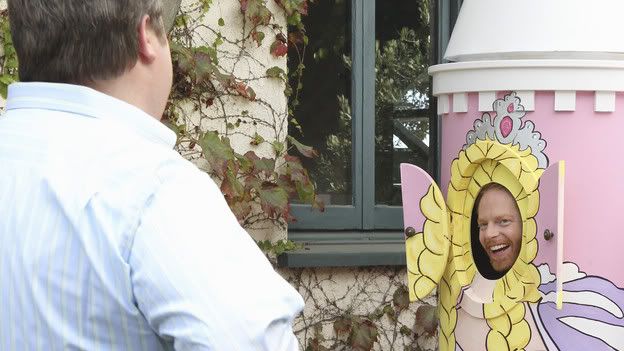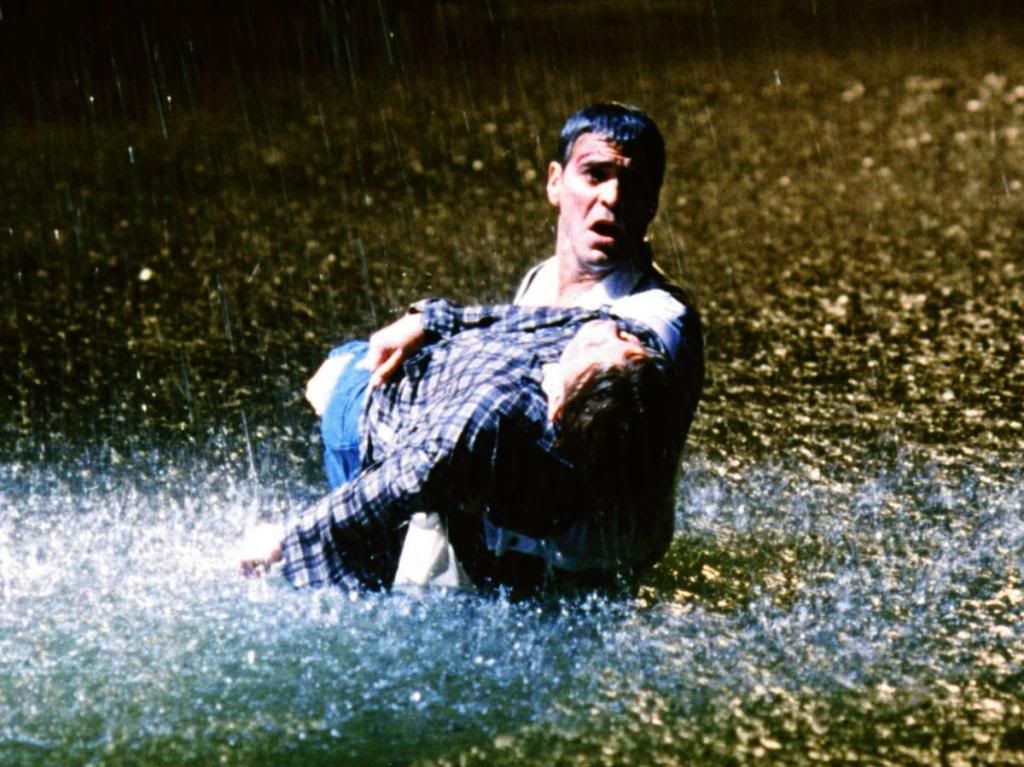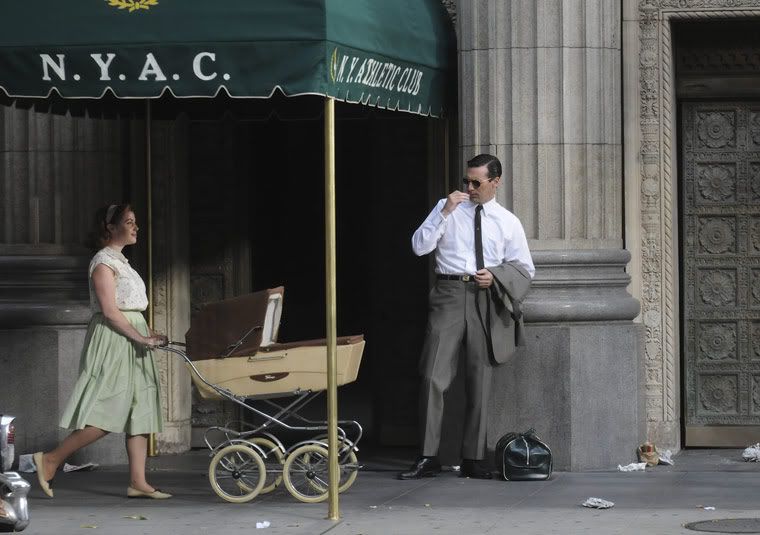I've really been looking forward to this year's return of The Good Wife. I didn't see it until the end of its run last year, but I was hooked halfway through the first episode I saw. It is extremely well-written and acted, and unlike many other shows (especially legal dramas), it's actively exciting and takes directions you wouldn't necessarily expect.
For those of you who have never seen the show before, essentially it stars Chris Noth as disgraced district attorney Peter Florick, living a fictionalized version of the Eliot Spitzer scandal. But as the title suggests, the perspective is from his wife, Alicia. The show spends some time with Alicia's feelings of betrayal, but what makes the show watchable is that Alicia is very strong in her own right, and is not merely the wronged wife, even though Peter's enemies choose to portray her that way in the media. This is a story of how she picks up the pieces, going back to work to take care of her family, leaving an uncertain relationship with her scoundrel husband.
As a result, the show has two major strands: the challenges at home, and the challenges at work, which brings its own set of characters. The show has done an excellent job of balancing the two, which is helped by the presence of strong talent in both camps (none stronger than Archie Panjabi, justly rewarded with an Emmy for her Nancy Drew character, Kalinda Sharma). But maintaining a precarious balance is difficult for shows in their second season, but The Good Wife shows no signs of faltering yet.
This is not a show that you expect to challenge the boundaries of FCC decency standards, but as I said before, the writers often surprise. This week's episode had what I'm fairly sure is the first on-screen portrayal of oral sex pointed in the female direction on network television. You don't see even a scrap of flesh, but it's still one of the sexiest scenes I've seen.
Other points of note:
- Man that judge is an asshole. Hope he gets his comeuppance.
- As always, Alan Cumming is a massive scene-stealer.
- Love the spy vs spy antics of Kalinda vs. whatshisface.
- Not enough Christine Baranski. But then again, there rarely is.









